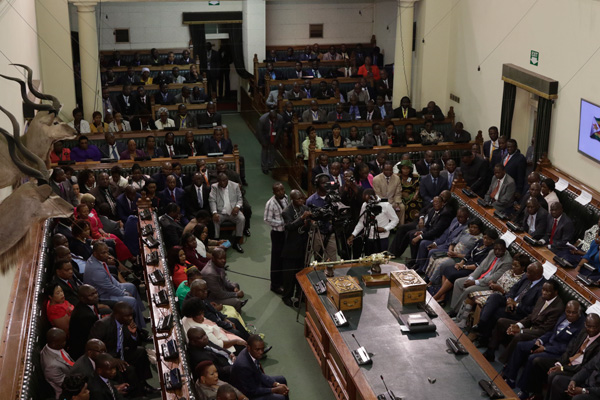
A Bill to enforce corporate governance in the banking sector sailed through the National Assembly on Wednesday.
by business reporter
The Banking Amendment Bill has to pass through Senate and requires President Robert Mugabe’s signature for it to become law.
The Bill seeks to make banking institutions more responsive to their customers’ needs and encourages the resolution of disputes between banks and their customers. It will introduce transparency in the shareholding and operations of banking institutions.

It will increase co-operation between the different financial regulatory authorities.
The Bill stipulates that no individual shall hold shares in a banking institution or a controlling company if the shares exceed 25% of the total nominal value or the total voting rights of all the issued shares of the banking institution. Initially, the Bill had set the cap at 10%.
The proposed law will make directors and senior managers of banking institutions liable to lawsuits if they act recklessly or negligently.
- Chamisa under fire over US$120K donation
- Mavhunga puts DeMbare into Chibuku quarterfinals
- Pension funds bet on Cabora Bassa oilfields
- Councils defy govt fire tender directive
Keep Reading
If their bank or company is placed under curatorship or wound up and its business has not been carried on prudently, “they will be liable for its debts unless they establish that they were not responsible”.
The Registrar of Banks and the Deposit Protection Corporation (DPC) may take legal action against them on behalf of depositors and creditors, who suffer loss if directors and executives act recklessly, negligently or fraudulently. A new section will compel banking institutions to have their financial soundness assessed at least once a year by an accredited assessment institution.
Analysts say the reforms will bring order in the banking sector.
Zimbabwe has witnessed a number of bank failures, all with the same ailments — undercapitalisation, poor corporate governance, insider non-performing loans and abuse of depositors’ funds akin to declaration of dividend to shareholders.
Six banks – Allied, Trust, AfrAsia, Capital, Interfin and Royal – have been closed since 2012.
Last month, DPC said it had so far paid out $2,6 million to 9 495 depositors of the six closed banks.











